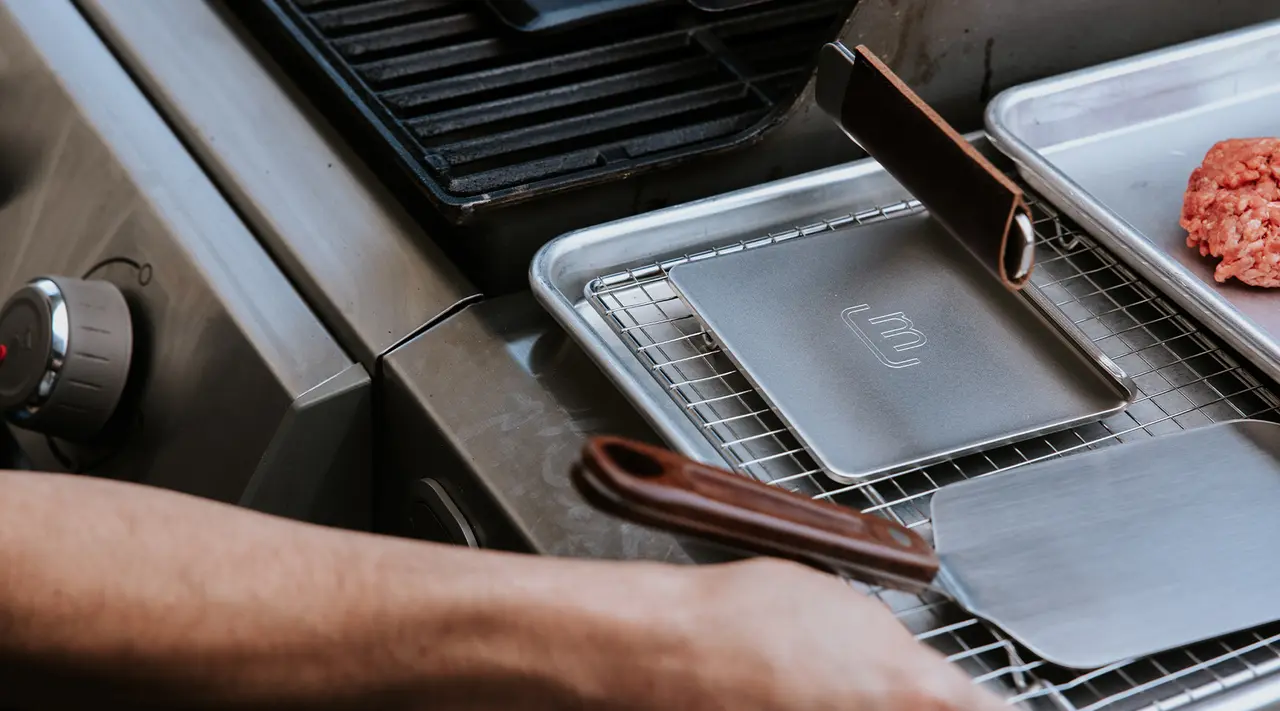How to Clean Plastic Handle Griddle Tools Safely and Effectively?
Written By James Morgan
For barbecue enthusiasts, maintaining your griddle tools is as essential as perfecting your grilling technique. One of the most common challenges faced is learning how to clean plastic handle griddle tools without causing damage. These tools are vital for flipping burgers, searing steaks, and grilling veggies, and keeping them in top shape ensures they serve you well for many grilling seasons.
Plastic handles present a unique challenge due to their sensitivity to heat and certain cleaning chemicals. However, with the right techniques and a bit of patience, you can keep your plastic handle griddle tools looking new and functioning perfectly.

Why Cleaning Your Griddle Tools Properly Matters
Proper maintenance of your grilling tools not only extends their lifespan but also ensures food safety. Residue from previous grilling sessions can harbor bacteria and cause food contamination. Additionally, leftover grease can affect the taste of your grilled food, making it less enjoyable.
Moreover, uncleaned tools can become sticky and difficult to handle, affecting your grilling experience. By dedicating time to clean and care for your tools, you maintain their efficiency while ensuring a hygienic cooking environment.
Step-by-Step Guide to Cleaning
1. Gather Your Supplies
Before you begin, gather the necessary cleaning supplies:
- Warm soapy water
- Soft sponge or cloth
- Non-abrasive scrub pad
- Baking soda
- White vinegar
- Clean towels
Having your supplies ready will make the cleaning process smooth and efficient.
2. Initial Rinse
Start by rinsing the griddle tools under warm water to remove any loose debris. This step helps to loosen any stuck-on food particles, making the subsequent cleaning easier.
3. Wash with Soapy Water
Submerge your tools in warm, soapy water. Use a soft sponge to gently scrub the plastic handles. Avoid abrasive pads on the plastic to prevent scratches. For the metal parts, a non-abrasive scrub pad can be used to clean off tougher residue.
4. Use a Baking Soda Paste for Tough Stains
For stubborn stains, a paste made of baking soda and water works wonders. Apply the paste to the affected areas, let it sit for a few minutes, and then scrub gently.
5. Vinegar Rinse
White vinegar is excellent for cutting through grease. After washing, rinse the tools with a solution of water and a splash of vinegar. This step helps to remove any soap residue and adds a shine to the metal parts.
6. Dry Thoroughly
After cleaning, dry your tools thoroughly with clean towels. Pay special attention to the metal parts to prevent rust. Store them in a dry place, ready for your next grilling adventure.
Preventative Measures for Prolonged Tool Life
Taking a few preventative steps can significantly extend the life of your griddle tools. Avoid leaving them in direct sunlight for prolonged periods, as this can weaken the plastic handles. Also, consider using a grill mat or tray to catch drips and prevent buildup on the tools.
Regular inspection of your tools is also essential. Check for cracks or wear, especially on the handles, and replace them if necessary to maintain safety standards.
Common Mistakes to Avoid
1. Using Harsh Chemicals
While it might be tempting to use strong chemicals for quick cleaning, they can damage the plastic handles. Stick to mild, household cleaning agents to preserve the integrity of your tools.
2. Ignoring the Handles
Many focus only on the metal part of the tools, neglecting the handles. Ensure the handles are cleaned thoroughly to prevent grease buildup and ensure a secure grip.
3. Not Drying Properly
Leaving tools to air dry can lead to water spots and even rust on the metal parts. Always dry them with a towel immediately after cleaning.
Additional Resources and Tips
For more insights on keeping your grilling tools in top condition, check out this guide on griddle maintenance. Additionally, exploring the uses of griddle scrapers can provide more tips on effectively cleaning your cooking surface.
For more advanced techniques and tools, feel free to explore this resource on griddle tools.
Conclusion
Understanding how to clean plastic handle griddle tools is crucial for any barbecue enthusiast. With proper care and maintenance, your tools will not only last longer but will also enhance your grilling experience. Remember, a clean grill is a happy grill, ready to deliver delicious meals every time you fire it up.

FAQ
1. Can I use a dishwasher to clean my griddle tools?
It's generally advisable to hand wash griddle tools, especially those with plastic handles, to prevent warping or damage from high heat.
2. How often should I clean my griddle tools?
Cleaning after each use is recommended to prevent residue buildup and ensure food safety.
3. Are there specific soaps I should use?
Mild dish soap is sufficient for cleaning griddle tools. Avoid harsh chemicals to protect the plastic handles.
This article contains affiliate links. We may earn a commission at no extra cost to you.



